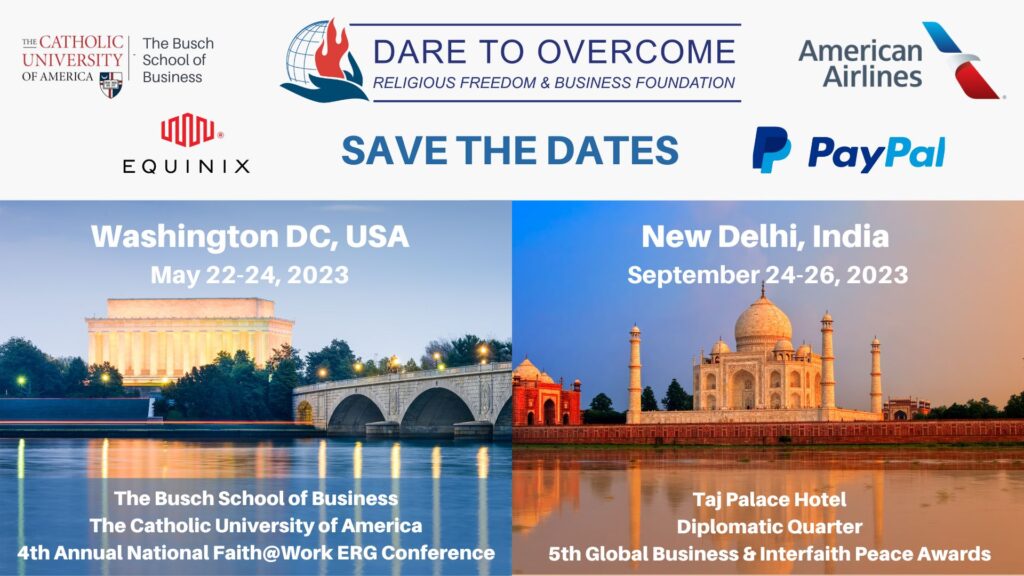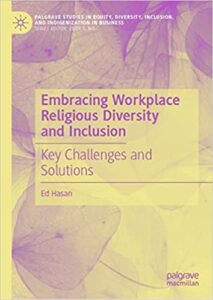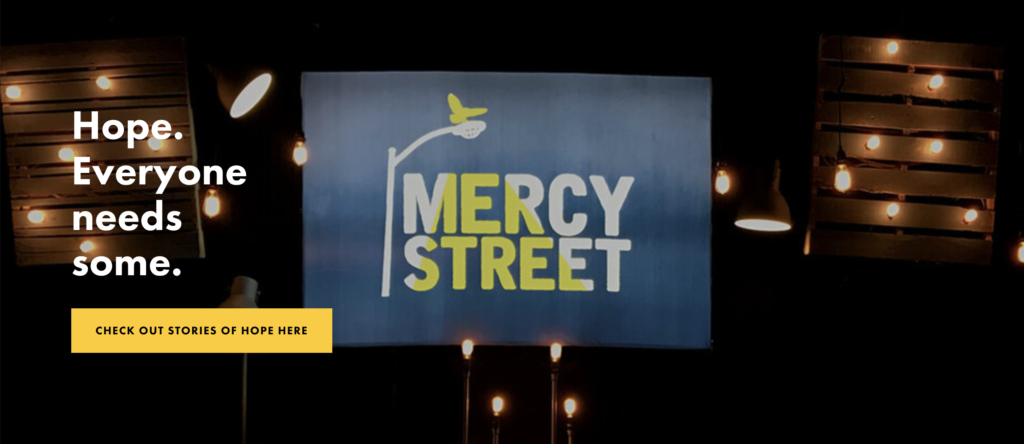
Address by Brian Grim: Nov. 11, Interfaith@Work Summit, Utah
Good morning. Since this is a multi-faith event, I hope we can all learn something new about another faith today. As a Catholic in the Jesuit tradition, I’ll get the ball rolling with a story you might have heard before:
Members of three catholic orders were walking along an old road, debating the greatness of their orders. The Franciscan emphasized that they do not believe in living lavishly while other Christians live in poverty and misery. The Dominican emphasized how they see everything through the lens of the Holy Trinity. And the Jesuit emphasized how their striving for “magis’ or excellence in all things helped them establish schools and top universities the world over. Suddenly, an apparition of the Holy Family appeared in front of them, with Jesus in a manger and Mary and Joseph praying over him. The Franciscan fell on his face, overcome with awe at the sight of God born in such poverty. The Dominican fell to his knees, adoring the beautiful reflection of the Trinity in the Holy Family. The Jesuit walked up to Joseph, put his arm around his shoulder, and said, “So, have you thought about where to send him to school?”
So, in that great Jesuit tradition, let me talk about some research the Religious Freedom & Business Foundation has done, with the last example I’ll give being a study my daughter and I did as part of an initiative at Georgetown University, a Jesuit institution.
Research shows that a growing number of top multinational corporations are embracing religion and belief as part of their diversity, equity, and inclusion commitments. Just as companies allow and encourage employees, for example, who are women, LGBT, of color, or of differing abilities, to form company-sponsored, employee-led affinity groups or Employee Resource Groups (ERGs), companies are increasingly allowing and encouraging employees to establish similar groups around faith, interfaith, and/or belief.
These ERGs are global and can be faith-specific, such as at the Intel Corporation, which has ERGs for Agnostics, Atheists, and Allies; Baha’i; Christians; Hindus; Jews; Muslims; and Sikhs. The ERGs can also be interfaith with sub-chapters for faith-and-belief communities, such as Google’s Inter Belief Network (IBN), with chapters for Buddhists, Christians, Hindus, Jews, Muslims, and Interfaith – for groups that are not yet ready to establish a formal chapter.
Faith-and-belief ERGs provide a platform for employees to support one another and give employees of faith an official voice within the company to make their concerns and ideas known, including business insights. Indeed, these give a company a competitive edge that increase employee morale and, therefore, retention. These ERGs make it easier to recruit new talent among people for whom their faith and belief are core identities, by letting them know that people like them work successfully here. These, of course, benefit a company’s bottom line, which provides a pragmatic reason for companies to support freedom of religion and/or belief in the workplace.
But more than that, research also shows two things. First, including faith and belief as part of a company’s diversity, equity, and inclusion commitments both reinforces attention to other affinities.
As part of the initial launch of the Corporate Religious Equity, Diversity & Inclusion (REDI) Index, the Religious Freedom & Business Foundation (RFBF) analyzed the level of attention Fortune 100 companies place not only on religion, but also the following categories: race/ethnicity, women/gender, sexual orientation, veterans/military, dis/ability, age, and family.
The analysis showed that the level of focus companies place on each of the seven diversity categories is higher among companies that acknowledge religion than among companies that do not. We refer to this positive association between companies that place focus on religious inclusion and their commitment to the other categories of diversity as a “religion dividend.”
For example, companies focusing on religion score 69% higher on age inclusion, 63% higher on veterans/military inclusion, 60% higher on dis/ability inclusion, and 47% higher on race/ethnicity inclusion. Sizable “religion dividends” include companies acknowledging religion scoring 35% higher for women/gender inclusion and 31% higher on family inclusion. While the smallest religion dividend is for sexual orientation (scoring 4% higher), it is still notable that the relationship is positive.
This also coincides with global RFBF research showing that religious freedom fosters a positive environment for LGBT people, and that LGBT rights are increasing in countries with higher levels of religious freedom.
The second thing that research shows about the value of including religion and belief as part of a company’s diversity, equity, and inclusion commitments is how respecting freedom of religion or belief (FORB) in the workplace opens the door for a corporation to stand up for other human rights, such as those violated by human trafficking, or modern-day slavery. There are an estimated 40.3 million people enslaved right now, according to A21, one of the largest organizations in the world that is solely fighting human trafficking.
Various human rights violations occur at different stages of the trafficking cycle, including unassailable rights such as: the right to life, liberty, and security; the right to freedom of movement; and the right not to be subjected to torture and/or cruel, inhuman, degrading treatment or punishment.
So, how does respecting freedom of religion or belief (FORB) in the workplace open the door to combatting the human rights violations concomitant with human trafficking?
Dell Technologies – a company that develops, sells, repairs, and supports computers and related products and services – is based in Austin, Texas. It is a global employer of more than 150,000 people. Until a few years ago, it didn’t have a faith-related ERG.
Dell started its Interfaith@Dell ERG after its acquisition in 2016 of EMC, which had an interfaith ERG. Dell employees at had a robust Christian Bible study and prayer group for many years, but it was unofficial – not a company-sponsored group. The merger with EMC created an opportunity to keep the Christian activities but elevate faith and belief to a much higher level. The large informal Christian group decided to get behind the interfaith group from EMC as an official Dell ERG.
As the new Interfaith@Dell ERG gathered people from all the different faiths and beliefs working at Dell, they looked beyond being just affinity groups for their respective faiths to envisioning how to put their faith-inspired virtues and ethics into action. As they deliberated, all gravitated toward a concern for one of the most marginalized groups in the world – people being trafficked for labor or sexual exploitation.
Interfaith@Dell proposed to the company that this issue was larger than just a concern for faith communities, but one that touched every human community. Thus, Interfaith@Dell proposed the first-ever pan-ERG initiative of any sort in the company’s history! They proposed combating human trafficking. Top Dell leadership embraced the proposal, which now has become a global campaign, in partnership with A21, to end human slavery forever.
Dell Technologies Interfaith ERG received the A21 Catalyst Award for leading the charge in combatting human trafficking. The Award was presented in Washington DC by A21 on the opening day of Dare to Overcome, the Religious Freedom & Business Foundation’s annual faith-and-belief national employee resource group (ERG) conference. The conference is held in partnership with the Busch School of Business at The Catholic University of America, and brings together faith-and-belief ERGs from top Fortune 500 in allyship with diverse communities, including those with disabilities.
The Interfaith@Dell ERG has now successfully invited other companies to join the “Initiative for Freedom” (a human trafficking awareness effort), also in partnership with A21. Thousands of Dell employees are now equipped to spot human trafficking and report it to the authorities.
The example of Interfaith@Dell is an illustration of how workplace freedom of religion and belief is realized by embracing religion and belief as part of their diversity, equity, and inclusion commitments, resulting in a broader initiative to combat human rights abuses, in this case those associated with human trafficking.
The illustration of Interfaith@Dell taking on human trafficking reveals several principles.
First, freedom of religion and belief (FORB) can be built, not just advocated for. Faith-and-belief ERGs are religious freedom in practice, and it is built from the ground up. ERGs don’t happen by executive dictate, but from a groundswell of interest that executives support because of principled and/or pragmatic reasons.
Second, majority faiths – in the case of Dell in Texas, evangelical Christian – can have multiplied impact when they work in coalition with others. Majority faiths become stronger when they, as St. Ignatius of Loyola said, “See God in all things.” Finding God in all things is at the core of Ignatian (Jesuit) Spirituality and is rooted in a growing awareness that God can be found in everyone, in every place and in everything. When we learn to pay more attention to God, we become more thankful and reverent, and more willing to work with people of differing faiths.
Third, the lens of faith brings things into focus what might otherwise be left unnoticed, e.g., trafficking victims. It’s not that people of faith are the only ones to care about such abuse, but when the better angels of our religious teachings and ideals are set free, they are compelled to put faith to practice, as is concisely summarized for many faiths in the Golden Rule: “Do unto others as you would have them do unto you.”
And fourth, it challenges ideas about corporations. They are more than the products or services they provide. They are communities of people. And that is where human rights matter the most.
Indeed, a growing number of top multinational corporations are embracing religion and belief as part of their diversity, equity, and inclusion commitments. This means there are new allies for building freedom of religion or belief, which, as described results in greater resources combat human rights abuses. It is incumbent upon human rights advocates to better understand how to engage with people in businesses, especially faith-and-belief ERGs, who work for freedom of religion or belief for all.
Finally, I’d like to draw your attention to a study that my daughter and I deed a few years ago estimating the socio-economic value of the overall religious sector to the US economy. This is a study I will discuss in more depth during the breakout session.
We find that religion annually contributes nearly $1.2 trillion of socio-economic value to the U.S. economy. That is equivalent to being the world’s 15th largest national economy, putting it ahead of about 180 other countries. It’s more than the annual revenues of the world’s top 10 tech companies, including Apple, Amazon, and Google. And it’s also more than 50% larger than that of the annual global revenues of America’s 6 largest oil and gas companies. So, you might say, especially with fuel prices these days, that represents a lot of spiritually inspired fuel being pumped into the U.S. economy.
Religion contributes economically to American society in three general categories: — Congregations: $418 billion — Religious institutions: $303 billion — Business: $437 billion (faith-based, -related or -inspired). All these figures come from a careful analysis of survey and financial data from a wide range of national sources detailed in the research article in the Interdisciplinary Journal of Research on Religion and a law review version in the University of St. Thomas Law Journal.

 Soon after I get back from India next week, I’ll head out to Equinix’s Silicon Valley headquarters in Redwood City to speak at a Dec. 9 holiday lunch on the importance of acknowledging the importance of every employee’s holidays. If you or your colleagues are in the area, please register and join this Equinix FaithConnect sponsored event!
Soon after I get back from India next week, I’ll head out to Equinix’s Silicon Valley headquarters in Redwood City to speak at a Dec. 9 holiday lunch on the importance of acknowledging the importance of every employee’s holidays. If you or your colleagues are in the area, please register and join this Equinix FaithConnect sponsored event!



















